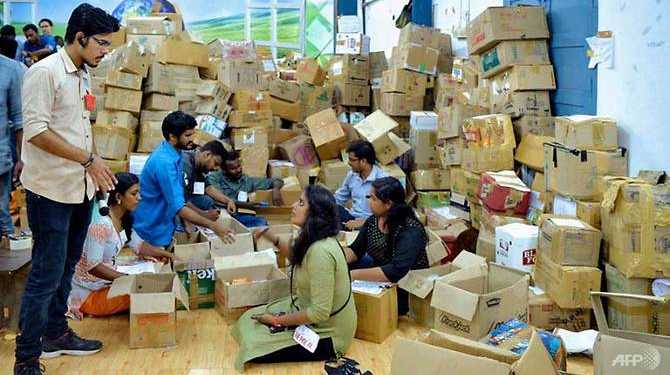As per recent reports, government of India has politely refused the foreign aid offers for the catastrophic Kerala floods. The UAE, Qatar and Maldives have offered to help India for relief, rehabilitation and reconstruction in the state of Kerala. While India is extremely grateful for the generous offers, India’s own resources will be used for rebuilding the state of Kerala. However, this restriction does not extend to private contributions pouring in from all over the world. The ministry of external affairs’ official spokesperson said, “In line with the existing policy, the Government is committed to meeting the requirements for relief and rehabilitation through domestic efforts. Therefore, India’s position is pretty clear as far as not accepting foreign aid is concerned.
There could be several reasons why India is denying foreign aid for bringing Kerala back on track. First of all, it must be kept in mind that India is no longer what it used to be in the turbulent years of the 1990s. India is no longer a fragile nation which would need foreign aid or mercy to restore normalcy. India is the sixth largest economy of the world and is soon expected to become the fifth largest, overtaking the United Kingdom. Being one of the largest economies of the world and also the fastest growing economy in the world, India has more than sufficient resources to resolve its internal crises. Floods in Kerala were indeed devastating and unfortunate. However, India has what it takes to bring the flood-hit state back on track. Our government and citizenry have enough resources to meet the cost of rehabilitation in Kerala.
Secondly, it must be remembered that what was being offered were not donations but financial assistance or credit in order to meet the cost of relief and rehabilitation. This is no generous aid but loans to meet the costs incurred which have to be repaid later. If India accepts the foreign aid on offer, India will also be obligated to pay back the loans along with interests thereon. Loans need to be taken only when there is a paucity of domestic resources to meet expenses. However, as stated earlier India has no such shortage of domestic resources. Thus, India does not need to borrow from other countries.
Lastly, one must remember that foreign funds come with their flipside. Though meant for relief and rehabilitation, such monetary aid is to a large extent, vulnerable to embezzlement and misuse. It is possible that these funds are used for conversion activities, terrorism, etc. Instead of bringing Kerala back to normalcy and stability, such misuse of foreign aid will further aggravate the anguish and plight of the people of Kerala. Last month itself, over 1,000 NGOs had been blacklisted. Minister of state for home affairs had then said, “Over 1,000 NGOs found to be mis-utilising foreign funds and violating various provisions of FCRA, 2010 and rules made there under, have been barred from operating their foreign contribution accounts.” This is why FCRA rules had been enforced in the first place. All voluntary organizations need to be registered under the FCRA Act to be eligible to receive financial aid from abroad. Moreover, all banks are required to report any transaction in respect of receipt of utilization of any foreign contribution by a person to the central government within 48 hours. This must have been a consideration while rejecting the offer of foreign aid from other countries.
The government’s decision to politely yet strictly refuse international aid must not be taken as an insensitive decision but a pragmatic one which has been taken after taking in mind all relevant consideration.

























